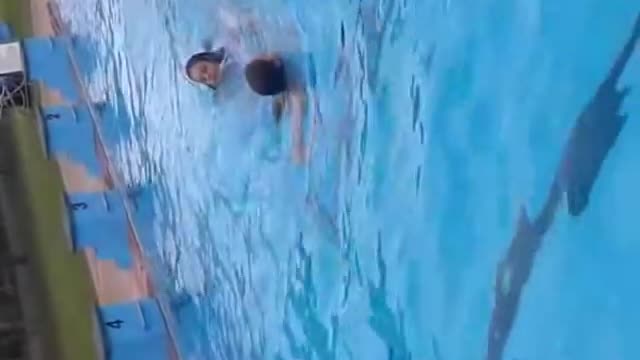Premium Only Content

Murmuration of starlings takes place on Ireland's west coast woman in water in
freshwater cenote in Mexico, these divers experience the thrill of looking a crocodile in the eye. Scuba diving takes the lucky few into a world of adventure and incredible sights. Most of us think of diving as drifting along, exploring coral reefs or swimming through schools of fish. Often it involves swimming near a sea turtle or watching a shark cruise past. But there is another side to diving that is less common and less frequently imagined when we say the words "scuba diving".
Cenotes are rivers of fresh water that are a popular diving destination, especially in Mexico. Limestone formation and erosion caused an enormous system of underground lakes and rivers, many of which are connected by tunnels and crevices. Scuba divers have been able to explore these beautiful and crystal clear cenotes for many years. The fish are unique and so is the animal life, because it is fresh water, not salt water that runs through them. Cenotes offer tunnels, ledges, overhangs, open areas, and even mangrove roots to explore.
These scuba divers had reached the turnaround point in their open cenote dive near Akumal, Mexico. They surfaced in a large pool in the mangroves from a depth of 12m (36 feet). The limestone ledges and mangrove bushes around the opening were the perfect habitat for crocodiles. This large male is 2.5m (7.5 feet) long and has a head and jaws that are full of very impressive teeth. The divers approached cautiously for a close look and some video and photographs of the formidable looking beast. Well camouflaged and large enough that he does not have any true predators, this male was not worried about a few people in his pool. But as they became braver and closed the distance, the crocodile gave them a warning that they had entered his personal bubble. With a display of his hundreds of teeth, the divers quickly got the message to move back.
Crocodiles are ambush predators that patrol the shores of the waters they inhabit. They recognize land animals that come to drink as prey. They will move silently and slowly until they are close enough for a lunge attack and they will snap their powerful jaws on the creature, dragging it into the water. Animals that are not killed quickly will be drowned and then eaten. But crocodiles are not used to hunting food in the water and they rarely see the marine animals as food. They also don't consider humans as food. Although these divers were in no danger of being attacked, they were clearly being told that the crocodile didn't trust them enough to have them move any closer
-
 LIVE
LIVE
JuicyJohns
1 hour ago $0.46 earned🟢#1 REBIRTH PLAYER 10.2+ KD🟢$500 GIVEAWAY SATURDAY!
110 watching -
 LIVE
LIVE
LFA TV
13 hours agoLFA TV ALL DAY STREAM - FRIDAY 8/1/25
5,291 watching -
 4:02:39
4:02:39
The Bubba Army
23 hours agoHulk Hogan had Leukemia? - Bubba the Love Sponge® Show | 8/01/25
73K1 -
 18:36
18:36
DeVory Darkins
9 hours ago $4.53 earnedTrump scores MAJOR WIN with Americas youth as Biden drops HORRIBLE speech
18.5K31 -
 14:13
14:13
Clickbait Wasteland
15 hours ago $5.21 earnedAsking New Yorkers Who they Support for Mayor: Harlem
39.2K27 -
 19:55
19:55
The Rad Factory
16 hours ago $2.34 earnedCan I Fix My Fire Damaged F1 Car?
22.1K2 -
 1:26:22
1:26:22
Dialogue works
2 days ago $1.15 earnedScott Ritter: Russia Just DEFIED the U.S.: We'll End the War on OUR Terms!
10.9K10 -
 2:00:40
2:00:40
BEK TV
1 day agoTrent Loos in the Morning - 8/01/2025
21.9K1 -
 13:08
13:08
Dad Saves America
14 hours ago $1.92 earnedTeachers Unions Play Politics While Students Lag Behind - Poisoning of the American Mind: Pt 4
26.6K18 -
 20:05
20:05
Preston Stewart
15 hours ago $2.70 earnedCrimea Raid to Chasiv Yar Fight
27.8K10